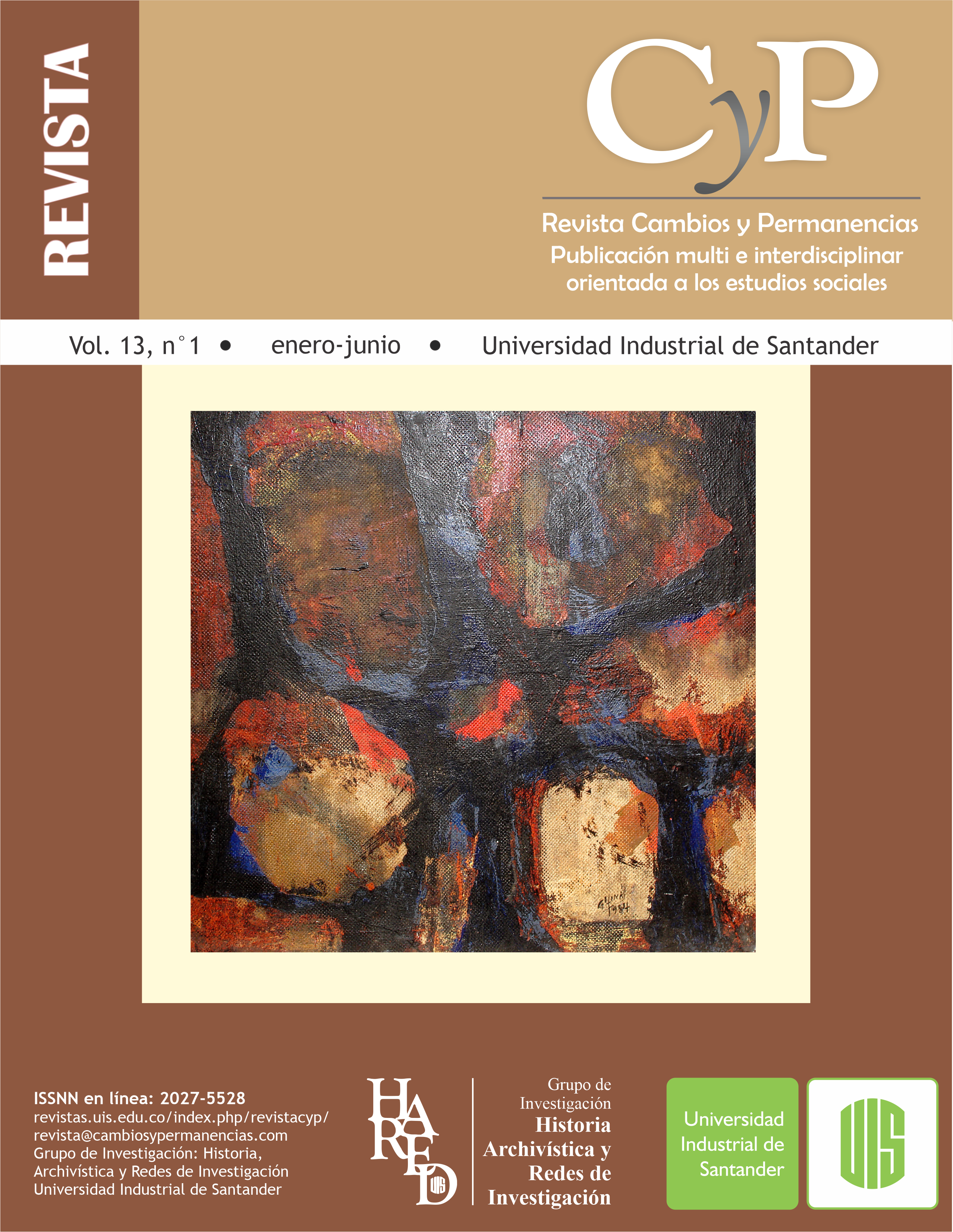Are conditionals and dispositions really dependent on each other? While widely deemed as dependent on their conditionals to manifest themselves, dispositions are perceived by some as structures with totally independent occurrence manifested in our world
Published 2022-06-05
Keywords
- Ascription,
- Masking,
- Reformulation,
- Observer,
- Causal
- Probability,
- Time ...More
How to Cite
Copyright (c) 2022 Revista Cambios y Permanencias

This work is licensed under a Creative Commons Attribution 4.0 International License.
Abstract
In the philosophical debate, it seems to be widely accepted that dispositions depend on conditionals in order to be manifested. However, other authors prefer to understand them as completely independent structures that manifest themselves in our material world. This article will first review the most influential aspects of this debate on disconnection and link between dispositions and conditionals; later in another section, by means of examples, it will intend to give a satisfactory answer concerning this supposed dependence; finally, upon analysis of the examples, some conclusions will be clarified. In these conclusions, we can find that it is not possible to deal so easily with the correspondence between conditionals and dispositions, since a strenuous attention to language, as well as multiple other details, will make this desired correspondence an infinite search for possibilities.
Downloads
References
- Aristóteles (1994). Libro 9 (theta) en T. Calvo Martínez (trad.), Metafísica (pp. 363-392). Gredos.
- Davidson, D. (1994). Filosofía de la psicología. M. Anthropos.
- Emons, W. (1997a). Kreditsicherheiten aus Informationsökonomischer Sicht en W. Wiegand (Ed.), Personalsicherheiten (pp. 13-21). Berner Bankrechtstag, n.º 4 / Stämpli & Cie.
- Emons, W. (1997b). Credence Goods and Fraudulent experts. Rand Journal of Economics, (28), 107-119. https://doi.org/10.2307/2555942
- Emons, W. (2001). Credence Goods Monopolists. International Journal of Industrial Organization, (19), 375-389.
- Emons, W. (2001). Information, Märkte, Zitronen und Signale. Wirtschaftsdienst, (11), 664-668.
- Gundersen, L. (2002). In Defense of the Conditional Account of Dispositions. Synthese, (130), 389-411. https://doi.org/10.1023/A:1014845625688
- Johnston, M. (2014). Wie über Farben sprechen en B. Vetter y S. Schmid (Eds.), Dispositionen: Texte aus der zeitgenössischen Debatte (pp. 225-255). Suhrkamp.
- Lewis, D. (2014). Finkische Dispositionen en B. Vetter y S. Schmid (Eds.), Dispositionen: Texte aus der zeitgenössischen Debatte (pp. 129-151). Suhrkamp.
- Macho-Stadler, I. Y Pérez-Castrillo, D. (2001). An Introduction to the Economics of the Information: Incentives and Contracts. Oxford University Press.
- Manley, D. y Wasserman, R. (2007). On Linking Dispositions and Conditionals. Mind, (117), 59-84. https://doi:10.1093/mind/fzn003
- Manley, D. y Wasserman, R. (2014). Über die Verbindung von Dispositionen und Konditionalen en B. Vetter y S. Schmid (Eds.), Dispositionen: Texte aus der zeitgenössischen Debatte (pp. 186-221). Suhrkamp.
- Martin, C. B. (2014). Dispositionen und Konditionale en B. Vetter y S. Schmid (Eds.), Dispositionen: Texte aus der zeitgenössischen Debatte (pp. 119-128). Suhrkamp.
- Prior, E., Parguetter, R. y Jackson, F. (2014). Drei Thesen über Dispositionen.
- Vetter, B. (2012) On Linking Dispositions and Which Conditionals? Mind, (120), 1173-1189. https://doi.org/10.1093/mind/fzr077
- Vetter, B. y Schmid, S. (2014). Einleitung en B. Vetter y S. Schmid (Eds.), Dispositionen: Texte aus der zeitgenössischen Debatte (pp. 7-57). Suhrkamp.
- Vetter, B. y Schmid, S. (Eds.). (2013). Dispositionen: Texte aus der zeitgenössischen Debatte. Suhrkamp.
